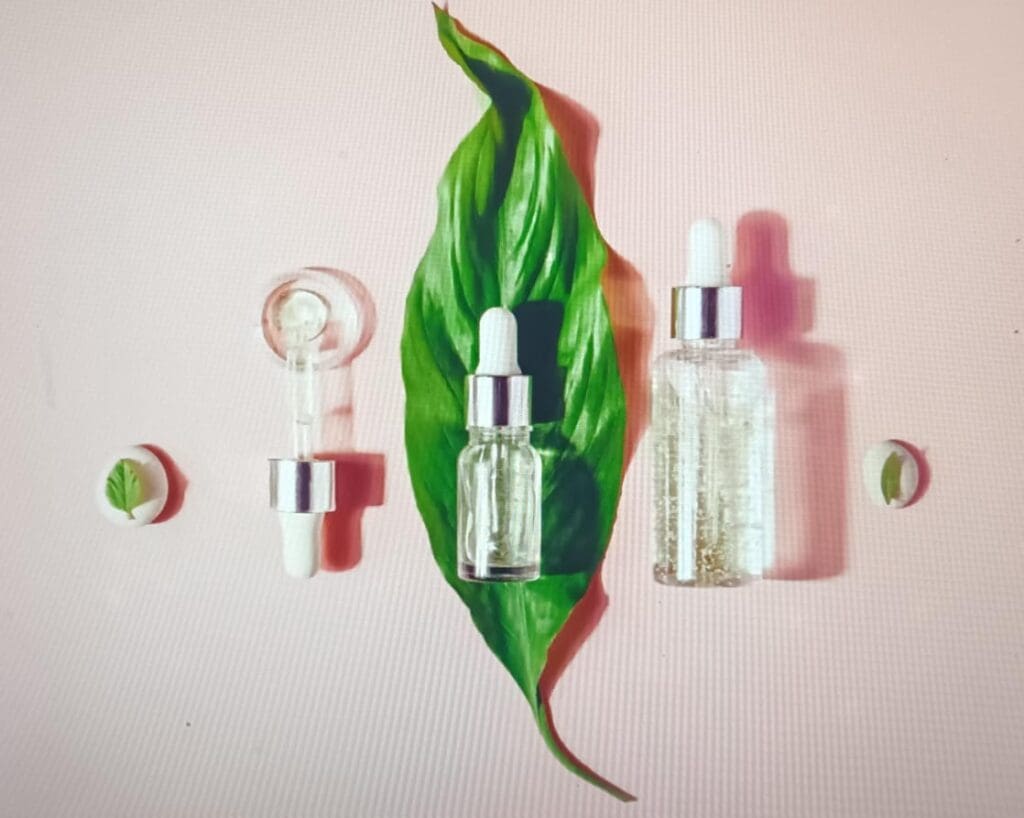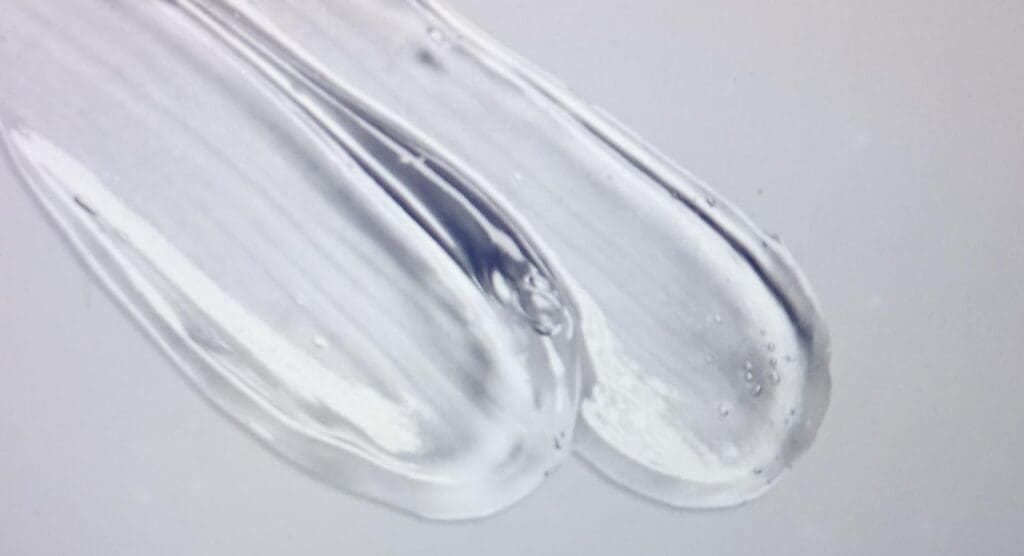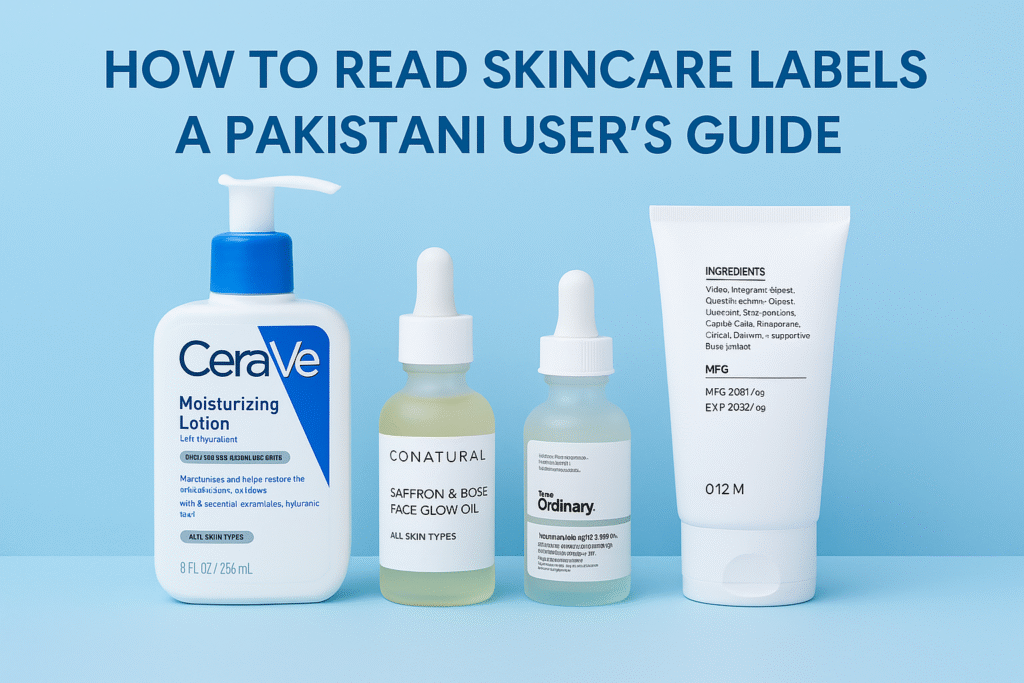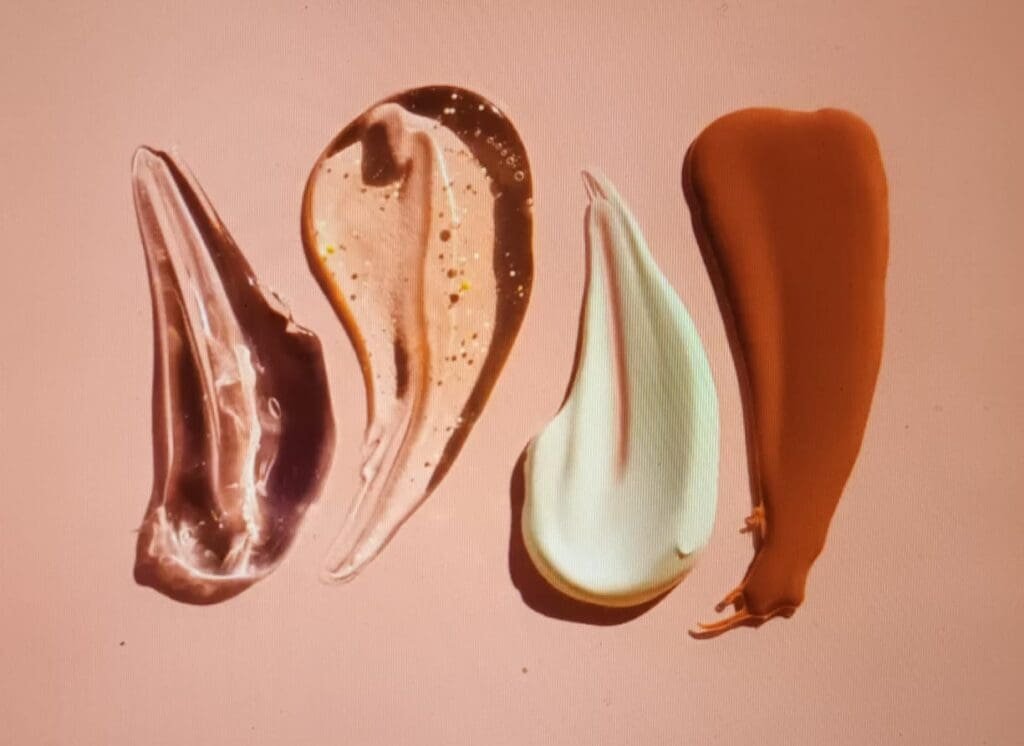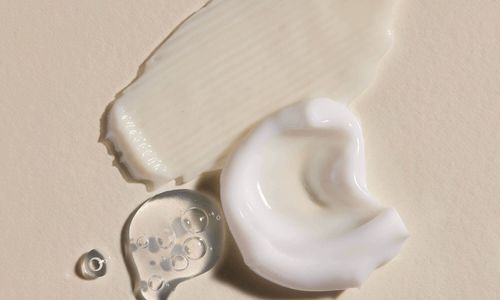
Best Anti-aging Ingredients
When it comes to finding the best ingredients for anti-aging skincare, it is important to remember that only a few are backed by solid clinical evidence.
These ingredients do not provide instant results, but with consistent use and patience, they can significantly improve the appearance of your skin over time.
So, which ingredients should you look out for?
Here are some of the most effective ones that have stood the test of time and research.
1. Sunscreen
Sunscreen is undoubtedly the most important anti-aging product you can use.
Research shows that up to 80% of visible facial aging is due to sun exposure.
Sun exposure can also lead to uneven skin tone, rough skin, and redness or visible blood vessels on the skin.
A broad-spectrum SPF 30 or higher can protect your skin from harmful UV rays that cause wrinkles, sunspots, and loss of elasticity.
Incorporating sunscreen into your daily routine is crucial to maintaining youthful skin.
Not only does it prevent new damage, but it also allows your skin to heal and repair itself, reducing the appearance of fine lines and uneven tone.
2. Retinoids
Retinoids are considered the gold standard in anti-aging skincare.
These Vitamin A derivatives, including over-the-counter retinol and prescription options like tretinoin, promote cell turnover and boost collagen production.
This helps reduce fine lines, wrinkles, and sun damage.
While retinoids can be very effective, they require consistent use and can cause irritation for some, so it is best to start with a lower concentration and build up your skin’s tolerance.
3. Bakuchiol
For those who have sensitive skin or are unable to use retinoids, bakuchiol is a great alternative.
Derived from plants, bakuchiol offers similar benefits to retinol, such as enhancing cell turnover and collagen production, but with less risk of irritation.
It is a gentler option for people looking to avoid the dryness or redness that can sometimes come with retinoid use.
4. Vitamin C
Vitamin C is a powerful antioxidant known for its ability to brighten the skin and fight signs of aging.
It helps protect the skin from environmental damage and boosts collagen production, which is essential for maintaining a firm, youthful appearance.
Regular use of a Vitamin C serum can help reduce the appearance of dark spots and improve skin tone, making it a staple in any anti-aging skincare routine.
5. Ferulic Acid
To boost the effectiveness of Vitamin C, many skincare products combine it with ferulic acid. This antioxidant helps stabilize Vitamin C, making it more effective at protecting the skin from free radicals and UV damage.
Scientists believe that ferulic acid is a powerful antioxidant, and it boosts the antioxidant properties of other skincare ingredients.
Ferulic acid also enhances the anti-aging effects of Vitamin C, helping to maintain a youthful appearance by protecting collagen and preventing damage that can lead to wrinkles and sagging.
6. Peptides
Peptides are short chains of amino acids that serve as the building blocks of proteins in the skin.
They help stimulate collagen production and can improve skin hydration.
Over time, peptides can help reduce the appearance of fine lines and wrinkles, making the skin look smoother and firmer.
They are a great addition to any anti-aging routine, particularly for those looking to improve skin texture and elasticity.
You can purchase The Ordinary Peptide Serum (Buffet) from PrimeSkin.
7. Hyaluronic Acid
Hyaluronic acid is a hydrating powerhouse that can help plump up the skin and reduce the appearance of wrinkles.
It attracts moisture to the skin, providing immediate hydration and smoothing out fine lines.
It is especially beneficial for those with dry skin, as it helps to maintain a healthy moisture balance and gives the skin a youthful, dewy glow.
8. Hydroxy Acids
Hydroxy acids, including alpha hydroxy acids (AHAs) and beta hydroxy acids (BHAs), are excellent for exfoliating the skin.
They help remove dead skin cells, promote cell turnover, and improve skin texture.
AHAs like glycolic acid are particularly effective for smoothing fine lines and enhancing skin radiance, while BHAs like salicylic acid penetrate deeper into the pores, making them ideal for oily or acne-prone skin.
Incorporating hydroxy acids into your routine can help reduce the appearance of wrinkles and reveal fresher, younger-looking skin.
9. Niacinamide
Niacinamide, also known as Vitamin B3, is a versatile ingredient that can benefit all skin types. It helps improve the skin’s barrier function, reducing moisture loss and protecting against environmental damage.
Niacinamide is also known for its ability to reduce redness, inflammation, and the appearance of pores, making it a great choice for those with aging and sensitive skin.
Its anti-inflammatory properties can help soothe irritated skin, while its ability to boost collagen production makes it an excellent addition to any anti-aging regimen.
10. Ceramides
Ceramides are lipids that naturally occur in the skin and play a key role in maintaining the skin’s barrier function.
They help keep the skin hydrated, firm, and protected against environmental damage.
As we age, the level of ceramides in the skin decreases, leading to dryness and a compromised barrier.

Education: University of Peshawar
Ahmad Khan holds a Master’s degree in Chemistry and has been writing about skincare for over five years. With a deep understanding of ingredients and their impact on the skin, he enjoys sharing practical, science-based skincare advice. When not writing, he loves playing with his kids.
